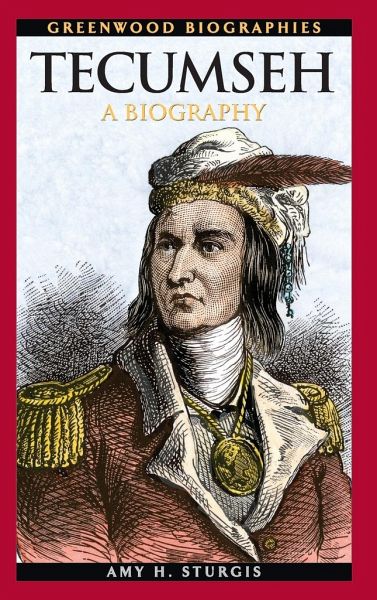
Tecumseh
A Biography
Versandkostenfrei!
Versandfertig in 1-2 Wochen
41,99 €
inkl. MwSt.

PAYBACK Punkte
21 °P sammeln!
One of the most important Native American leaders in history, the Shawnee leader Tecumseh protested land cession, and was a major catalyst of the Battle of Tippecanoe. He harnessed the tradition of American Indian pan-tribal unity to become the most important symbol of multi-national Native American identity and resistance in North America. This in-depth, accessible treatment explores the life of a key figure in Native American battle-lore who figures prominently in U.S. history curricula. Lively, narrative chapters explore the Shawnee culture, Tecumseh's childhood, the transformation of his b...
One of the most important Native American leaders in history, the Shawnee leader Tecumseh protested land cession, and was a major catalyst of the Battle of Tippecanoe. He harnessed the tradition of American Indian pan-tribal unity to become the most important symbol of multi-national Native American identity and resistance in North America. This in-depth, accessible treatment explores the life of a key figure in Native American battle-lore who figures prominently in U.S. history curricula. Lively, narrative chapters explore the Shawnee culture, Tecumseh's childhood, the transformation of his brother, Tenskwatawa into The Prophet, his creation of a pan-tribal movement, the War of 1812, and his legacy in history and popular culture.












